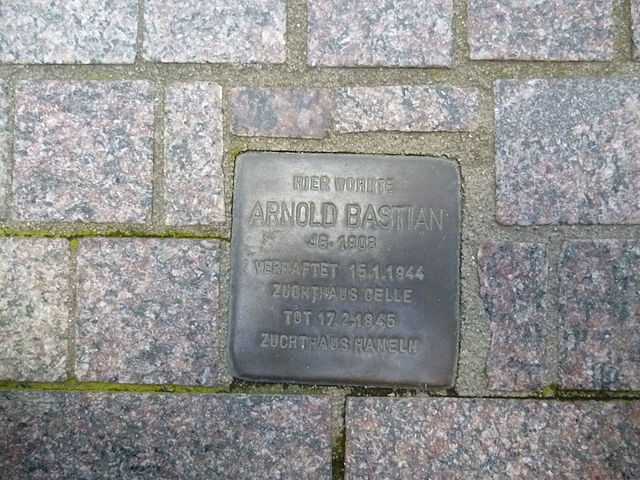Bent is a 1979 British-American play by Martin Sherman. It revolves around the persecution of gays in Nazi Germany, and takes place during and after the Night of the Long Knives.
Poster for the Royal National Theatre's 1990 revival of Bent, starring Ian McKellen
Persecution of homosexuals in Nazi Germany
Before 1933, male homosexual acts were illegal in Germany under Paragraph 175 of the German Criminal Code. The law was not consistently enforced, however, and a thriving gay culture existed in major German cities. After the Nazi takeover in 1933, the first homosexual movement's infrastructure of clubs, organizations, and publications was shut down. After the Röhm purge in 1934, persecuting homosexuals became a priority of the Nazi police state. A 1935 revision of Paragraph 175 made it easier to bring criminal charges for homosexual acts, leading to a large increase in arrests and convictions. Persecution peaked in the years prior to World War II and was extended to areas annexed by Germany, including Austria, the Czech lands, and Alsace–Lorraine.
![Memorial in Nollendorfplatz, Berlin. Text in triangle: "Struck Dead Hushed Up [dedicated to] The homosexual victims of National Socialism" Text below:](https://upload.wikimedia.org/wikipedia/commons/thumb/0/07/Gedenktafel_Rosa_Winkel_Nollendorfplatz.jpg/439px-Gedenktafel_Rosa_Winkel_Nollendorfplatz.jpg)
Memorial in Nollendorfplatz, Berlin. Text in triangle: "Struck Dead Hushed Up [dedicated to] The homosexual victims of National Socialism" Text below: "The 'pink triangle' was the sign with which the National Socialists marked homosexuals in the concentration camps in a defamatory way. From January 1933 almost all homosexual locales in and around Nollendorfplatz were closed by the National Socialists or misused by raids to create 'pink lists' (homosexual files)."
Eldorado (pictured in 1932), the most famous gay establishment in Germany
Stolperstein of Kurt Wilcke (1908–1944); imprisoned for his homosexuality in Fuhlsbüttel concentration camp [de]; later transferred to a penal battalion; died during the Battle of Narva.
Arnold Bastian (1908–1945) was arrested in 1944 for his homosexuality and died in prison in 1945.


![Memorial in Nollendorfplatz, Berlin. Text in triangle: "Struck Dead Hushed Up [dedicated to] The homosexual victims of National Socialism" Text below:](https://upload.wikimedia.org/wikipedia/commons/thumb/0/07/Gedenktafel_Rosa_Winkel_Nollendorfplatz.jpg/439px-Gedenktafel_Rosa_Winkel_Nollendorfplatz.jpg)

![Stolperstein of Kurt Wilcke (1908–1944); imprisoned for his homosexuality in Fuhlsbüttel concentration camp [de]; later transferred to a penal battali](https://upload.wikimedia.org/wikipedia/commons/thumb/e/e6/Kurt_Wilcke_-_Mildestieg_27_%28Hamburg-Barmbek-Nord%29.Stolperstein.nnw.jpg/600px-Kurt_Wilcke_-_Mildestieg_27_%28Hamburg-Barmbek-Nord%29.Stolperstein.nnw.jpg)
